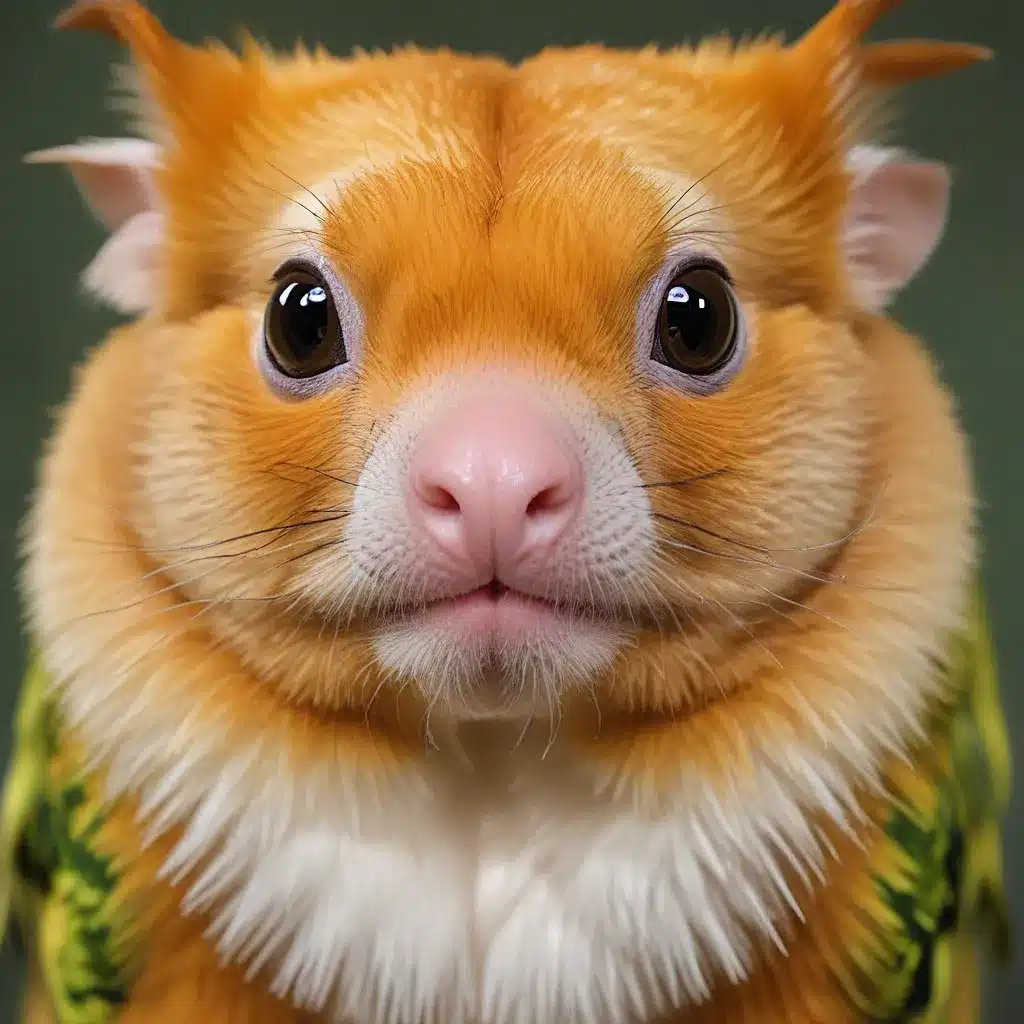
Ah, the joys of exotic pet ownership! Whether you’ve got a feisty ferret, a slithery snake, or a dazzling dragon, caring for these unique critters is certainly no walk in the park. And one of the most crucial aspects of keeping your exotic pal happy and healthy? Providing them with the right nutrition.
Now, I know what you’re thinking – how hard can it be to feed a little lizard or a fluffy bunny? Well, my friend, let me tell you, these pets have some seriously specific dietary requirements. It’s not like you can just toss ’em a few kibbles and call it a day. Nope, these exotic animals need a carefully crafted menu to ensure they’re getting all the nutrients they need to thrive.
Understanding the Dietary Needs of Exotic Pets
Let’s start with the basics, shall we? Unlike our feline and canine companions, exotic pets come in a dizzying array of shapes, sizes, and species. From birds and reptiles to small mammals and amphibians, each one has its own unique dietary preferences and nutritional needs.
Take birds, for example. These feathered friends are primarily seed-eaters, but they also require a healthy serving of fruits, veggies, and even the occasional protein to stay in tip-top shape. And when it comes to reptiles, well, the menu options can range from juicy insects to leafy greens, with the occasional fruity treat thrown in for good measure.
But it doesn’t stop there, oh no. Each individual species within these broad categories has its own set of dietary quirks and requirements. A parrot’s nutritional needs are vastly different from a cockatiel’s, and a bearded dragon’s diet is a far cry from a snake’s. It’s enough to make your head spin, I tell ya!
Striking a Delicate Balance: Macronutrients and Exotic Pets
Now, when it comes to feeding your exotic pal, it’s all about finding the right balance. You see, these critters need a careful blend of macronutrients – that’s the fancy term for carbohydrates, proteins, and fats – to stay in tip-top shape. And the proportions of these nutrients can vary wildly depending on the species.
For instance, insect-eating reptiles require a high-protein diet to fuel their active lifestyles, while herbivorous species need more fiber-rich foods to keep their digestive systems humming along. And don’t even get me started on the unique needs of sugar gliders or pocket pets – those little guys have some seriously specialized dietary requirements!
It’s a delicate balancing act, let me tell you. But with a little research and some trial and error, you can ensure your exotic pet is getting the perfect mix of macros to keep them healthy, happy, and downright energetic.
Supplementing for Optimal Health
But the nutritional needs of exotic pets don’t stop at just the big three – carbs, proteins, and fats. Nope, these critters also require a whole host of vitamins, minerals, and other essential nutrients to thrive. And that’s where supplementation comes into play.
Calcium, vitamin D3, and a whole slew of other micronutrients might need to be added to your exotic pet’s diet, especially for species with unique requirements or those kept primarily indoors. And let’s not forget about enrichment – providing your pet with a varied diet and engaging foraging activities can work wonders for their overall well-being.
But here’s the thing – you’ve gotta be super careful when it comes to supplementation. Overdoing it can be just as bad as not providing enough, so it’s always best to consult with a vet or a specialist in exotic pet nutrition to ensure you’re striking the right balance.
Avoiding the Dangers: Toxic Foods and Contaminants
Now, I know we all love to share our favorite snacks with our furry (or scaly) friends, but when it comes to exotic pets, that’s a big no-no. You see, certain human foods like chocolate, caffeine, and even avocado can be downright deadly for these critters. And let’s not forget about the potential dangers of pesticides and herbicides – those nasty chemicals can pose a serious threat to your exotic pet’s health.
So, when it comes to feeding time, it’s crucial to do your research and steer clear of anything that could potentially harm your beloved pet. And that includes thoroughly washing all fruits and veggies before serving them up. After all, you want your exotic pal to be around for the long haul, right?
Putting It All Together: A Balanced Diet for Your Exotic Pet
Whew, that’s a lot to take in, huh? But fear not, my friend, because with a little planning and some expert guidance, you can create a well-rounded, nutritious diet that’ll keep your exotic pet thriving.
Start by understanding the specific dietary requirements of your particular species – whether that’s a vibrant parrot, a curious chameleon, or a furry little ferret. Then, work on finding the right balance of macronutrients, supplementing with essential vitamins and minerals, and avoiding any potentially toxic foods or contaminants.
And don’t forget to mix things up! Providing a varied diet and engaging foraging opportunities can do wonders for your pet’s physical and mental well-being. After all, who doesn’t love a little culinary adventure now and then?
So, there you have it – the ins and outs of feeding your exotic pet. Remember, with a little love, a whole lot of research, and the guidance of experts, you can ensure your furry, feathery, or scaly companion is living their best life. And if you ever need a hand, our team at Golden Exotic Pets is always here to lend an expert paw. Happy feeding, my friend!

